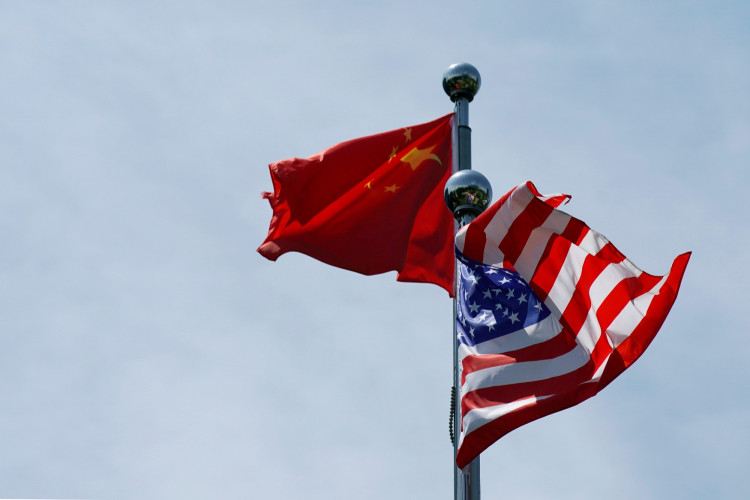As North Korean troops reportedly amass in Russia to support Moscow's war in Ukraine, the U.S. has called on China to intervene, urging Beijing to leverage its influence over North Korea and Russia to prevent further escalation. In a rare diplomatic outreach, top U.S. officials, including Secretary of State Antony Blinken and Defense Secretary Lloyd Austin, have pressed China to "curb" North Korea's involvement in the Ukraine conflict.
During a press conference in Washington on Thursday, Blinken confirmed the "robust conversation" between U.S. and Chinese officials, emphasizing that China's sway over Pyongyang should be exercised to halt these deployments. "They know well the concerns that we have and the expectations that they will use the influence that they have to work to curb these activities," Blinken stated.
Reports indicate that approximately 8,000 North Korean soldiers are stationed in Russia's Kursk region near the Ukrainian border. The troops, reportedly dressed in Russian military uniforms, have been trained in artillery, drones, and trench clearing, according to U.S. officials. The presence of these forces represents a significant escalation, sparking concerns from NATO and other Western allies. NATO Secretary General Mark Rutte described North Korea's involvement as a "dangerous expansion" of the war and a violation of United Nations Security Council resolutions.
China's response, however, has been notably muted. Liu Pengyu, a spokesperson for the Chinese Embassy in Washington, reiterated China's commitment to a peaceful resolution but refrained from condemning either North Korea or Russia. China has maintained strong alliances with both nations, notably establishing a "no limits" partnership with Russia while serving as North Korea's primary economic ally, facilitating more than 90% of the country's trade.
However, Beijing's close ties with both Moscow and Pyongyang place it in a precarious position. Shi Yinhong, a prominent international relations expert from Renmin University in Beijing, noted that while China might oppose the closer Russia-North Korea military alliance due to potential destabilization in the region, it has thus far refrained from making any public comments. The silence from China is seen by experts as an effort to avoid angering either the West or its allies amid a challenging economic period.
This ambiguity has fueled concerns in Washington, where officials are wary of the deepening Russia-North Korea partnership. Dennis Wilder, a senior fellow at Georgetown University, characterized China's silence as "staggering," speculating that Chinese President Xi Jinping may feel the need to support Russian President Vladimir Putin but also wishes to avoid alienating European and American allies.
U.S. defense officials further noted that if North Korean troops become involved in active combat in Ukraine, it could broaden the scope of the conflict with unpredictable consequences. Secretary Austin suggested that China should "be asking Russia some hard questions at this point," particularly regarding any intention to involve additional foreign fighters.
Meanwhile, the Biden administration has increased diplomatic efforts to address the situation. Deputy Secretary of State Kurt Campbell, along with other top U.S. officials, met with China's Ambassador to the U.S., Xie Feng, earlier this week to underscore the U.S. position. Although details of China's response have not been disclosed, the diplomatic push signals the urgency with which Washington views the matter.
Lu Chao, a Chinese academic from Liaoning University, countered the U.S. requests by stressing that China does not have an obligation to manage North Korea's actions, suggesting instead that Beijing's focus remains on avoiding escalation. He remarked, "It is not the case that China is responsible to manage North Korea and the U.S. is responsible for managing South Korea."
While Beijing's official stance on the conflict has been to advocate for peace talks and a political resolution, some U.S. analysts argue that China's inaction could risk further destabilization in East Asia. Victor Cha, a Korean affairs expert at the Center for Strategic and International Studies, commented that China may face "a combination of exasperation, a little bit of panic, and a little bit of not knowing what to do" in the current situation. With geopolitical pressures mounting, Beijing's next steps remain uncertain.






